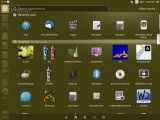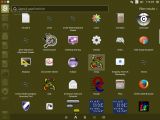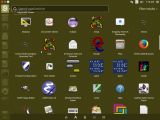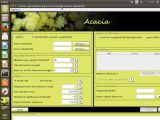Bio-Linux, a fully-featured, powerful, configurable, and easy to maintain bioinformatics workstation built on the Ubuntu operating system, is now at version 8.0.2.
Bio-Linux 8.0.2 is built on Ubuntu 14.04 LTS (Trusty Tahr), as opposed to the previous 7.x branch that used Ubuntu 12.04 LTS, and offers a graphical menu for bioinformatics programs, as well as easy access to the Bio-Linux bioinformatics documentation system and sample data useful for testing programs.
The developers have explained that the new release comes with more than 250 bioinformatics packages, which in turn provide around 50 graphical applications and several hundred command line tools.
“Bio-Linux 8 represents the continued commitment of NERC to maintain the platform, and comes with many updated and additional tools and libraries. With this release we support pre-prepared VM images for use with VirtualBox, VMWare or Parallels. Virtualised Bio-Linux will power the EOS Cloud, which is in development for launch in 2015,” reads the official announcement.
“The bioinfomatics software on Bio-Linux consists of the packages below, which includes our own packages as well as bioinformatics packages from the main Debian and Ubuntu repositories. This list was last updated in July 2014 and new and updated packages may have been added since then.”
According to the changelog, a number of important applications like QIIME, Mothur, Jalview, Artemis, BLAST, Bowtie-Bio tools, and more have been updated, numerous R packages, including ggplot2, DESeq, and edgeR plus updated Bioconductor and thousands more have been upgraded, and pre-prepared templates have been added for VMWare/VirtualBox.
Also, NX has been replaced with x2go, a more flexible version of the fast and secure remote-desktop system, the MATE desktop has been added as an alternative to Unity, a better packaging of Galaxy has been implemented, which features support for loading tool-shed tools, Apache proxy, automated PostgreSQL set-up, authentication to local accounts, and SFTP file uploads.
Users can install Bio-Linux on any computer, either as the only operating system, or as part of a dual-boot setup. This will allow people to use the current system and Bio-Linux on the same hardware.
Bio-Linux 8.0.2 also runs Live from the DVD or a USB stick. The operating system will function in the memory of the computer, without having to install anything. The developers even recommend that people use the virtual appliance, which can run in Virtualbox, for example, but at least 4GB of memory is needed.
Check out the official announcement for a complete list of changes and updates. You can download Bio-Linux 8.0.2 right now from Softpedia.
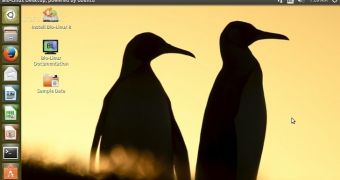
 14 DAY TRIAL //
14 DAY TRIAL // 
